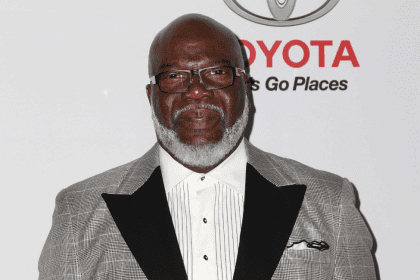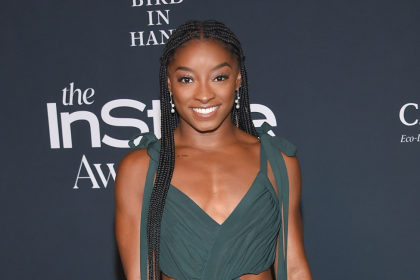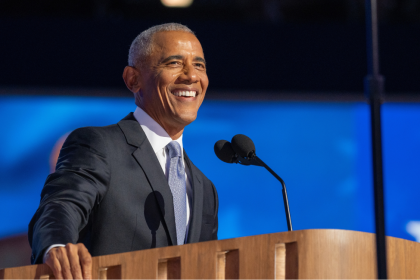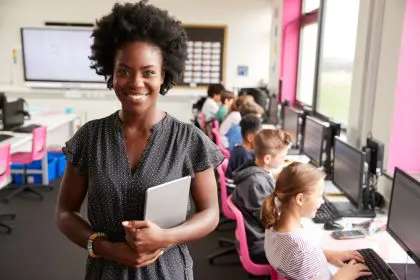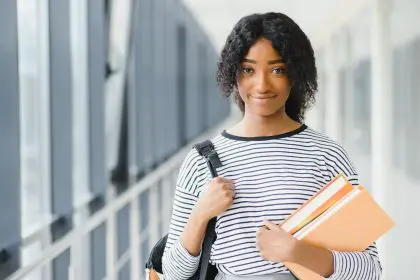
Black students in public schools are being labeled as disruptive, disrespectful and uncontrollable. One week after the incident at Spring Valley High in South Carolina caused some to blame the student who was slammed and dragged by a resource officer, a video surfaced of Black students in a class at Chicago Vocational Career Academy.
In the video, the students are laughing and rolling on the floor as the substitute teacher attempts to gain control. The video has since become a symbol of what some are calling an epidemic of Black students who are out of control.
However, the short video clips may not tell the entire story of what’s really occurring in predominately Black schools.
We recently spoke with educator Johnae Strong who holds a master’s degree in urban education and teaches at an inner-city public school in Chicago.
Here is what she had to say about the notion of there being an epidemic of “disruptive” Black students.
When you first saw the video of the kids at the Chicago Vocational Career Academy, what were your initial thoughts?
I heard people talk about the video before I was able to see it. From what I heard, I expected to see a lot of violence, or be really shocked. When I actually saw it, it really looked to me like students who saw an opportunity to act silly and they weren’t a real threat. They’re very inappropriate and it was disrespectful, but I don’t see that they were actually intending to be violent or follow through on anything they were doing. It appeared like they were being immature and young and I think that’s something that can happen with any child or any student.
If you were in that same situation with teenagers and you were a substitute, how would you have handled that classroom?
It’s difficult to really control or dictate a classroom environment when you’re not a part of that community or you don’t know those students. However, I would definitely take that opportunity to completely pause. Because at this point, we need to have a check-in and you need to know who I am and I need to show you that I’m invested in who you are. Because if you just see me as this person standing in this physical space to kind of watch you, then that will give you the understanding that you can do whatever you want. Because this is temporary, this is somebody who is not invested in you and whatever you do. At the end of the day, the kids see that there are no real consequences to it. But it’s much more difficult to act in that way when you have an investment with the person who is sharing space with you and you know that this person will follow up with you. If I were the substitute, I would definitely have to let the students know that their actions have consequences and you can’t just have a period to act out and think that you can be done with it.
What are your thoughts on people who say that Black students are out of control?
I think that it’s an easy argument to make. I think that it’s always easy to point at the symptoms or point at the actions of individuals and not really get to the bottom of what the conditions are or what the root cause for is happening. I think that the real disconnect is the lack of investment in students, the lack of investment in Black students in particular. If there are students who are dealing with trauma or living with trauma outside of school walls and they’re bringing those things with them into the school, they don’t have a valid place to voice what they’re feeling or any type of place where they feel like someone is invested in their trauma. I think it’s very easy to talk about the problem and say that it’s the fault of the individual rather than looking at the systematic cause of it and figuring out ways to put in procedures and policies that are going to support Black students. For these incidents to decrease, Black students must feel like they can be very transparent and that the adults in the school building actually care about them or even love them. At this point, I don’t feel that school is a space for love, nurturing, or concern. It’s really another holding space. Young Black kids can feel that and so there’s really no incentive to really invest into school spaces or into the adults who don’t invest in them.
So do you think it’s an issue of race? Is it only Black kids who are acting out in public schools where there is a lack of discipline?
I definitely don’t think that acting up in school is just a Black thing. I think that cutting up in school is something that any child of any race, ethnicity or background around the world can relate to. When it comes to Black students, the argument or popular opinion always veers in that direction. But I don’t think that’s accurate or factual. It highlights the bigger issue I was talking about before about investment. What is it about this Black child that there’s no question of who is supporting that child or where is this behavior coming from and how can we intervene? Instead, we’re made to believe that Black students are disrespectful and they need to be reprimanded; they need to have metal detectors; they need to have police in their schools. When disciplinary problems occur with other races, they find out what is happening at home or the psychoanalysis needs to be done to determine if they need medication, counseling or some type of support. But you don’t see that conversation happening with Black students.



